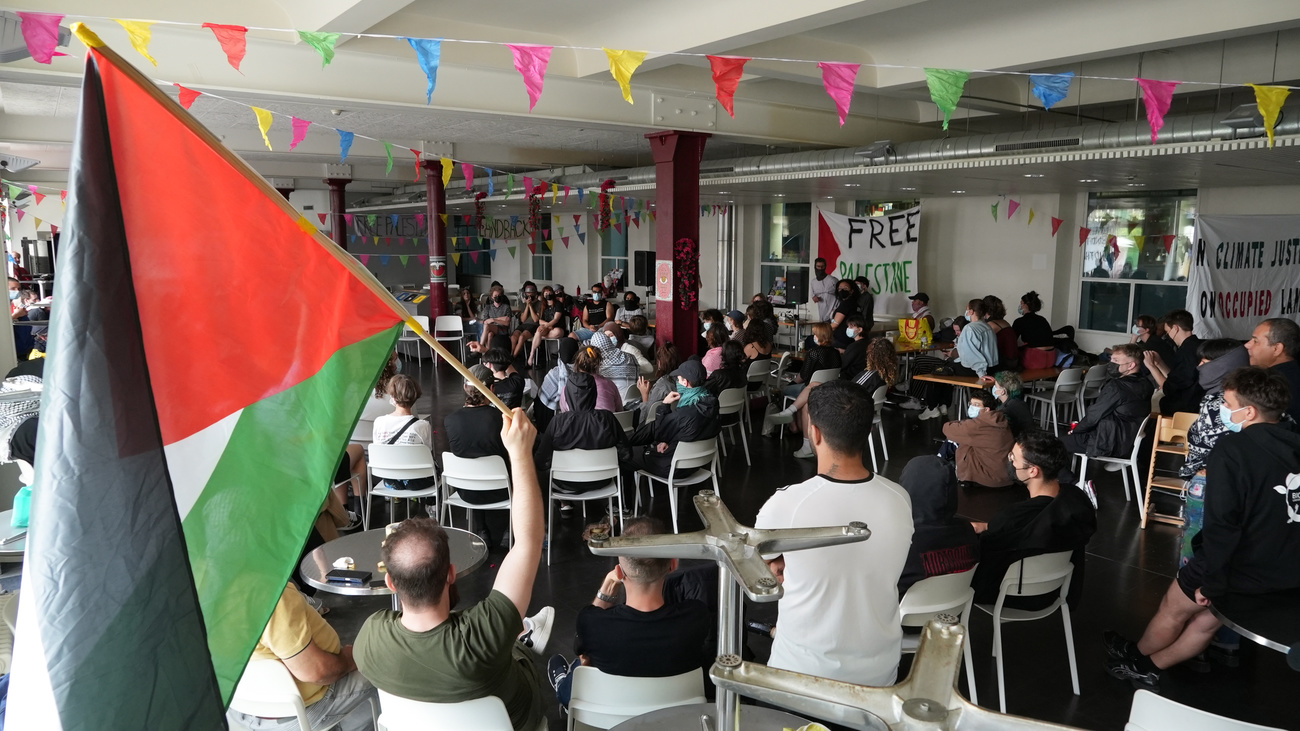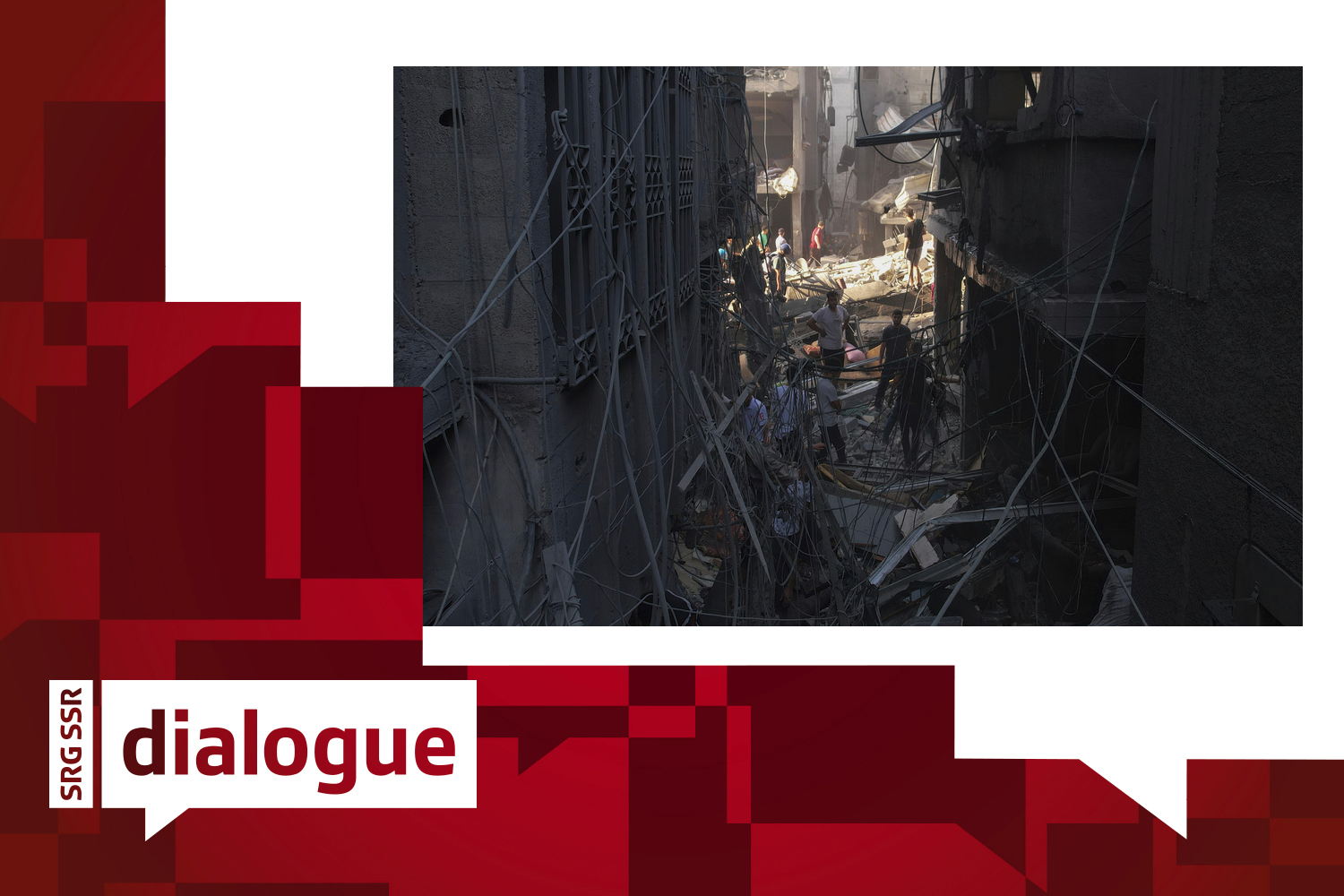
Swiss pro-Palestine protest reaches University of Bern

The student pro-Palestine protest has reached the University of Bern. On Sunday evening, about 60 people occupied the University's Unitobler building in the Länggass neighbourhood, as reported by a correspondent for the Keystone-SDA news agency.
According to a spokesperson, most of the occupiers were students from the University of Bern. However, all other people are also invited to take part in the protest.
In a statement, the occupiers accuse the management of the university of having taken a clear political stance in the Middle East conflict. “Pro-Palestinian employees are being censored. Meanwhile, academic relations are maintained with Israeli institutions. This must stop.”, it declares.
“We call on the university to respect the peaceful occupation and enter into dialogue with us,” the statement said. No statement was initially available from the university. Pro-Palestine protests also took place in Geneva, Lausanne, and Zurich last week.
In Bern, the University decided at the beginning of the year to dissolve the Middle East Institute in its current form. This was in response to the results of an administrative enquiry after a lecturer at the institute made supportive comments about the Hamas attack on Israel.

More
Timeline: Switzerland and the conflict in the Middle East
On Sunday, the occupiers spoke of “censorship that attacks the academic freedom of employees who are critical and in solidarity with Palestine”. This repressive climate means that the University of Bern is not fulfilling the role of the “progressive” space it wants to be.
According to the occupiers, they contacted the university executive board immediately after the action began. They told media representatives that they did not want to disrupt operations starting on Monday.

More
Conflicts: Should neutral Switzerland be more proactive?
“We’re just taking up space so that we can draw attention to our concerns,” said one activist. “We will stay as long as necessary.” The protest is to remain peaceful.
Adapted from German by DeepL/dkk/mga
This news story has been written and carefully fact-checked by an external editorial team. At SWI swissinfo.ch we select the most relevant news for an international audience and use automatic translation tools such as DeepL to translate it into English. Providing you with automatically translated news gives us the time to write more in-depth articles.
If you want to know more about how we work, have a look here, and if you have feedback on this news story please write to english@swissinfo.ch.

In compliance with the JTI standards
More: SWI swissinfo.ch certified by the Journalism Trust Initiative






























You can find an overview of ongoing debates with our journalists here . Please join us!
If you want to start a conversation about a topic raised in this article or want to report factual errors, email us at english@swissinfo.ch.